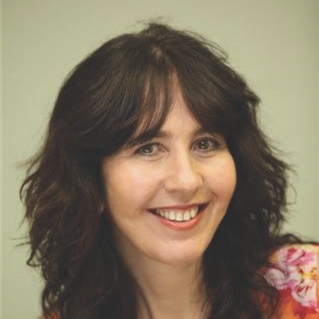click to dowload our latest edition
CLICK HERE TO SUBSCRIBE TO OUR NEWSLETTER


Published
6 years agoon
By
adminPETA KROST MAUNDER
Their life stories are so different, as are their backgrounds. But their integrity, their passion for Israel and South Africa, their values-based politics and their keen understanding of the nuances in both countries are quite similar. Both are astute intellectuals and although both are respected by many, they have also made enemies.
Their enemies were made along the way because neither were yes men, choosing to stick to their moral principles – a rare occurrence these days, particularly in the political realm.
I am not going to dig deep into their stories or their views on Israeli and South African politics – that will be done in these pages next week.
And, while some in South Africa still take exception to their views, these men will not be cowed. You can make up your own minds about them once you’ve read their stories.
What I do want to talk about is being a tall poppy in countries where tall poppies often get their heads chopped off. The tall poppy analogy refers to people who stick their necks out when the majority of those in their society or community don’t or won’t. They go against the grain and do it without fear or favour, while others choose to take the easy route of following the flock.
These two men have had the courage to stand by their convictions.
In the case of Benjamin Pogrund, he stood up against the government of the day to ensure that he told the truth to his readers. He told the stories of black South Africa, black politics and what was really happening during apartheid. For this, he spent time in prison and certainly made no friends back then within the leadership of the Jewish community. But he had the respect of the likes of the late president Nelson Mandela – who was then the leader of Umkhonto weSizwe and nicknamed “the Black Pimpernel” – and the founder of the Pan Africanist Congress, the late Robert Sobukwe. Pogrund later wrote a book on Sobukwe.
For doing what he believed was right, he literally found himself unemployable in South Africa when the Rand Daily Mail, with which his name was synonymous, was forced to close down in 1985. So, he left the country and ultimately moved to Israel.
There, he works with Palestinians and Israelis in bridging the divide. Again, not a hugely popular occupation in Israel.
Pogrund has a deep love for Israel and South Africa, but he unashamedly tells it like he sees it, which never sits comfortably with those who don’t want to see Israel’s imperfections. He speaks about all the warts, but still has a deep love for the wart-riddled but phenomenal country.
The former ambassador to South Africa, Alon Liel, is back in South Africa for a brief visit, almost 30 years after he was posted here.
He was sent to South Africa towards the end of apartheid and was around during the initial “rainbow” years of optimism that characterised Mandela’s presidency.
He, too, was a good friend of Madiba. Not surprising because, like Pogrund and Liel, Mandela lived according to a strong moral code.
He got to know the leadership of the ANC well, long before it was popular to do so.
Today, back in Israel, Liel is no longer in mainstream politics because, as he says: “My politics haven’t changed, but the country’s have and it has gone far right, or as we say in Israel, right-right. This makes what I do look much more left than it really it.”
Liel is a fervent believer in a two-state solution and in finding a peaceful solution to the problems with the Palestinians. He doesn’t believe in the occupation.
Although he has many concerns about politics in Israel, he is a passionate Zionist and loves his homeland. Because of this, he remains vocal about what he believes is happening, and what he believes must happen. He loves his country so much that he doesn’t mind being unpopular in mainstream politics because of his beliefs. Has it made his life more difficult? Yes. Will he keep saying what he believes needs to be said? Yes.
I respect people like Pogrund – he remains one of my role models as a journalist – and Liel, who I had looked forward to meeting again after many years.
In our community, too often we choose not to stick our necks out because, well, nobody really wants to get beheaded. It generally feels better to fit in with what others are doing and saying. It is comfortable and welcoming.
But the people who get things done and those who are true leaders don’t follow the crowd. They trailblaze. They do what they believe is 100% morally right – which may not be what fits what you believe is right – and they do it with integrity. Do they always succeed? No, not always. But those who do are remembered – not necessarily with love, but certainly with respect.
Shabbat Shalom!

Choni
Feb 13, 2018 at 1:54 pm
‘No respect for those who wish to see Israel giving up one inch of God given Land.’